#lawrence hayward
Text

#felt#lawrence hayward#martin duffy#hours of darkness have changed my mind#forever breathes the lonely word#lawrence
23 notes
·
View notes
Audio
Go-Kart Mozart - When You're Depressed (2018)
Go-Kart Mozart, now Mozart Estate, are the brainchild of Lawrence (Felt, Denim). Here’s a cheerful pop song about depression! A theme song for Tumblr users, maybe.
You really can't imagine why
You used to care, you used to try
25 notes
·
View notes
Text
It’s nearly midnight and religiously listening to Me and a Monkey on the Moon again because it gives me the comfortcore, man. “Never Let You Go” doesn’t even sound like it’s a part of the album for some reason. It flows well and is musically in-tact with the rest of the album. It just, I don’t know, so much better than the other songs (even though all the other songs are incredible). Y’know what I mean?
#felt#lawrence hayward#jangle pop#indie pop#how does this happen#band#i only added band so the people on here can find felt easier by using felt band#or something idk
5 notes
·
View notes
Photo


Hand woven hand-stitched FELT band cushion pillow by Telarama
#felt band#handwoven#cushion#pillow#home decor#handmade art#jangle pop#lawrence hayward#textile art#textile design#denim#go-kart mozart#mozart estate
5 notes
·
View notes
Text
G’eth Character Name Bank
First Names
Masculine Names
Alfred, Andrew, Arlo, Arthur, Balthazar, Barry, Ben, Benedick, Bernard, Burchard, Cedric, Charibert, Crispin, Cyrill, Daegal, Derek, Digory, Drustan, Duncan, Edmund, Edwin, Elric, Evaine, Frederick, Geffery, George, Godfreed, Gregory, Guy, Harris, Harry, Horsa, Hugh, Humphrey, Iago, Jack, Jeremy, John, Kazamir, Kenric, Lawrence, Leoric, Lorik, Luke, Lynton, Lysander, Madoc, Magnus, Maukolum, Micheal, Miles, Milhouse, Mordred, Mosseus, Ori, Orvyn, Neville, Norbert, Nycolas, Paul, Percival, Randulf, Richard, Robert, Roderick, Stephen, Tennys, Theodoric, Thomas, Tristan, Tybalt, Victor, Vincent, Vortimer, Willcock, Willian, Wymond
Feminine Names
Adelin, Alice, Amelia, Beatrix, Beryl, Bogdana, Branwyne, Brigida, Catalina, Catherine, Claudia, Crystina, Deanna, Desdemona, Elaine, Elinora, Eliza, Enide, Eva, Ferelith, Fiora, Freya, Gertrude, Gregoria, Gueanor, Gwen, Gwendolyn, Hannah, Hegelina, Helen, Helga, Heloise, Henrietta, Igraine, Imogen, Jacquelyn, Jane, Jean, Jenny, Jill, Juliana, Juliet, Katie, Leela, Lettice, Lilibet, Lilith, Lucy, Luthera, Luz, Lyra, Malyna, Margherita, Marion, Meryl, Millie, Miranda, Molle, Morgana, Morgause, Nezetta, Nina, Novella, Olwen, Oriana, Oriolda, Osanna, Pamela, Petra, Philippa, Revna, Rohez, Rosalind, Rose, Sallie, Sarra, Serphina, Sif, Simona, Sophie, Thomasine, Tiffany, Ursula, Viola, Winifred, Yrsa, Ysabella, Yvaine, Zelda, Zillah
Gender-Neutral/Unisex Names
Adrian, Alex, Aiden, Arden, Ariel, Auden, Avery, Bailey, Blaire, Blake, Brett, Breslin, Caelan, Cadain, Cameron, Charlie, Dagon, Dana, Darby, Darra, Devon, Drew, Dylan, Evan, Felize, Fenix, Fernley, Finley, Glenn, Gavyn, Haskell, Hayden, Hunter, Jace, Jaime, Jesse, Jo, Kai, Kane, Karter, Kieran, Kylin, Landon, Leslie, Mallory, Marin, Meritt, Morgan, Nell, Noel, Oakley, Otzar, Paris, Peregrine, Quant, Quyn, Reagan, Remy, Robin, Rowan, Ryan, Sam, Samar, Sasha, Sloan, Stace, Tatum, Teegan, Terrin, Urbain, Vahn, Valo, Vick, Wallace, Waverly, Whitney, Yardley, Yarden, Zasha
Surnames
Surnames, Patrilineal - First Name (Patrilineal Surname)
Ace, Allaire, Appel, Arrow, Baker, Bamford, Barnard, Beckett, Berryann, Blakewood, Blanning, Bigge, Binns, Bisby, Brewer, Brickenden, Brooker, Browne, Buller, Carey, Carpenter, Carter, Cheeseman, Clarke, Cooper, Ead, Elwood, Emory, Farmer, Fish, Fisher, Fitzroy, Fletcher, Foreman, Foster, Fuller, Galahad, Gerard, Graves, Grover, Harlow, Hawkins, Hayward, Hill, Holley, Holt, Hunter, Jester, Kerr, Kirk, Leigh, MacGuffin, Maddock, Mason, Maynard, Mercer, Miller, Nash, Paige, Payne, Pernelle, Raleigh, Ryder, Scroggs, Seller, Shepard, Shore, Slater, Smith, Tanner, Taylor, Thatcher, Thorn, Tilly, Turner, Underwood, Vaughan, Walter, Webb, Wilde, Wood, Wren, Wyatt, Wynne
Surnames, Townships in G’eth - First Name of (Location)
Abelforth, Argent Keep, Barrow Springs, Barrowmere, Bedford, Brunhelm, Bumble, Casterfalls, Dunbridge, Falmore Forest, Folk’s Bounty, Frostmaid, Fulstad, Heller’s Crossing, Hertfordshire, Humberdale, Inkwater, Little Avery, Marrowton, Mistfall, Mistmire, Morcow, Necropolis-on-Sea, Otherway, Parsendale, Piddlehinton, Port Fairwind, Redcastle, Ransom, Rutherglen, Saint Crois, Tanner’s Folly, Tavern’s Point, Wilmington
Surnames, Geographical Locations in G’eth - First Name of the (Location)
Cove of Calamity, Deep Woods of Falmore, Eastern Isles, Eastern Mountains, Foothills, Frozen Peak, Lakes, Maegor Cobblestones, Northern Mountains, Southern Isle, Tangle, West Coast, Wild Wild Woods, Woods of Angarad
Surnames, Nickname - First Name the (Something)
Bald, Bastard, Bear, Bearded, Big, Bird, Bold, Brave, Broken, Butcher, Bruiser, Careless, Caring, Charitable, Clever, Clumsy, Cold, Confessor, Coward, Crow, Cyclops, Devious, Devoted, Dog, Dragonheart, Dreamer, Elder, Faithful, Fearless, Fey, Fool, Friend, Generous, Giant, Goldheart, Goldfang, Gouty, Gracious, Great, Hag, Handsome, Hawk, Honest, Huge, Humble, Hungry, Hunter, Innocent, Ironfist, Ironside, Keeper, Kind, Lesser, Liar, Lionheart, Little, Loyal, Magical, Mercenary, Merchant, Messenger, Old, Orphan, Pale, Polite, Poet, Poor, Prodigy, Prophet, Proud, Reliable, Romantic, Rude, Selfish, Sellsword, Scab, Scholar, Shield, Shy, Singer, Sirrah, Slayer, Slug, Small, Stoneheart, Swift, Tadde, Talented, Tart, Tenacious, Timid, Tiny, Tough, Traveller, Trusted, Truthful, Viper, Wizard, Wolf, Wyrm
106 notes
·
View notes
Text
˗ˏˋ 𝐑𝐎𝐁𝐈𝐍’𝐒 𝐁𝐈𝐑𝐓𝐇𝐃𝐀𝐘 𝐂𝐄𝐋𝐋𝐘 ´ˎ˗

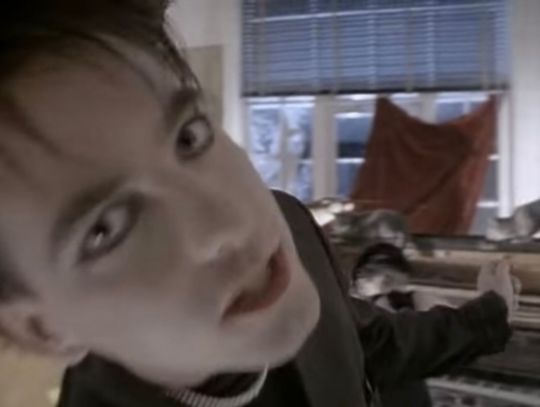

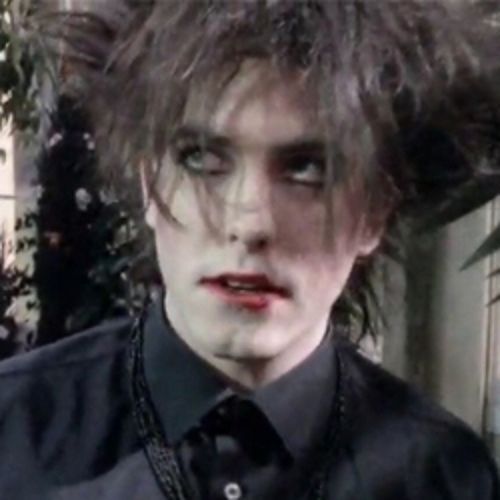

୭- 𝐁𝐎𝐘𝐒 𝐃𝐎𝐍𝐓 𝐂𝐑𝐘 : standard tumblr games (cym, whos most likely, kmk etc,etc.)
🕸- 𝐅𝐀𝐒𝐂𝐈𝐍𝐀𝐓𝐈𝐎𝐍 𝐒𝐓𝐑𝐄𝐄𝐓 : send me a trope and a character and i will make headcanons about it. (drummer!butch jojo, baker!peter parker)
⋆-𝐋𝐔𝐋𝐋𝐀𝐁𝐘 : matchups!! send me a short desc. of yourself and i will match you up with someone (please include fandom and gender preference)
୭- 𝐋𝐎𝐕𝐄 𝐒𝐎𝐍𝐆 : moots only!!! i will associate you with a song, artist, color, book, movie and character!
🕸- 𝐅𝐑𝐈𝐃𝐀𝐘 𝐈𝐌 𝐈𝐍 𝐋𝐎𝐕𝐄 : give me a specific mood/ vibe/pastime and i will give you a movie, song and book rec!
⋆- 𝐏𝐈𝐂𝐓𝐔𝐑𝐄𝐒 𝐎𝐅 𝐘𝐎𝐔 : your turn!! tell me who you ship me with!! you can write little headcanons or thoughts <33 (please do this one if you do ilysm!!)

DISCLAIMER!! : please only stick to one request per ask! and only the fandoms i write for!! keep the reqs sfw!! I AM A MINOR!!! also if a character is canonically lesbian or gay then only req for that gender specific reader please (no robin buckley x male reader)!!! this event is running from 1/07-1/31 !! have fun loves!!
TAGGING MOOTIES!! : @mictodii @spaceagebachelormann @dizzyntrr @juneberrie @solutopia @spiderst4rgirl @spiderfunkz @stvrlighttgabss @isitoversnowtvs @jaidens @dljcem @doyouknowwhoyouare13
CHARACTERS I'M WRITING FOR : tasm! peter parker , miguel diaz, johnny lawrence, daniel larusso, anthony larusso, hawk mozkowitz, robby keene, tori nichols, dallas winston, ponyboy curtis, steve randal, two-bit matthews, darry curtis, johnny cade, sodapop curtis, butch jojo, brick jojo, boomer jojo, sirius black, regulus black, james potter, remus lupin, marlene mckinnon, ron weasley, fred weasley, george weasley, cedric diggory, harry potter, hermione granger, luna lovegood, ginny weasley, lee jordan, bradley bradshaw, nick bradshaw, pete mitchell, tom kazenzky, anakin skywalker, luke skywalker, leia skywalker, han solo, richie tozier, stanley uris, eddie kaspberak, beverly marsh, ben hascom, mike hanlon, bill denbrough, mike wheeler, eddie munson, robin buckley, steve harrington, max mayfield, lucas sinclair, richie white, john b routledge, jj maybank, sarah cameron, kiera carerra, pope hayward. ask if a character you would like isn't on this list!!

29 notes
·
View notes
Text
As Zanuck Sr. repeatedly told his son, had Valley of the Dolls been a product of the Hollywood studio system at its apex, in less than a week he would have assigned it to a contract director, one or more of the studio’s stable of thirty-plus top screenwriters, an available cameraman, production and costume designer, a composer, and a cast selected from 20th’s contract talent roster. It isn’t hard to imagine a forties-era Valley of the Dolls. On tap at the studio were any number of great beauties and “types,” some of them quite talented. And if those weren’t quite right, Zanuck might have arranged to borrow talent from other studios. There was Gene Tierney, Linda Darnell, or Jeanne Crain to play the reserved New Englander Anne Welles. Betty Grable, Rita Hayworth, or Lana Turner might have played the luckless showgirl Jennifer North. The young Bette Davis, Susan Hayward, or Ida Lupino would have fit as brilliantly talented, tormented Neely O’Hara. Tyrone Power/Gregory Peck/Cornel Wilde could have slipped easily into the role of suave, slippery Lyon Burke, alongside Dana Andrews as press agent Mel, Vincent Price as Charles Revson–inspired cosmetics empire maven Kevin Gillmore, and Clifton Webb as fashion designer Ted Casablanca. For good measure, Zanuck could have thrown in Gertrude Lawrence as fading Broadway virago Helen Lawson, Frank Sinatra/Dean Martin/Vic Damone as Tony Polar, and Geraldine Fitzgerald as Miriam, sister of the sexy, childlike crooner. Or had Zanuck made the movie later in his career, he could have helped himself to the talents of, respectively, Hope Lange, Diane Varsi, or Shirley Jones as Anne, Marilyn Monroe, Joan Collins, or Debra Paget as Jennifer, Joanne Woodward as Neely, Richard Burton or Stephen Boyd as Lyon, Roddy McDowall as Ted Casablanca, Claudette Colbert or Mary Martin as Helen, Elvis Presley as Tony with Angela Lansbury as Miriam. But in 1966, the days of the studio system and exclusive contracts were on life support. With the long shadow of Darryl F. Zanuck looming over Valley of the Dolls, it would take Richard D. Zanuck, producer David Weisbart, and director Mark Robson long, torturous months and many reversals before the casting—let alone the entire production—finally pulled together. And, from his Paris headquarters, Zanuck Sr. thought that was laughable—when he didn’t find it infuriating.
-- Dolls! Dolls! Dolls!: Deep Inside Valley of the Dolls, the Most Beloved Bad Book and Movie of All Time, Stephen Rebello
Rebello's bonkers fancasts here have captivated me.
7 notes
·
View notes
Text
characters/actors

full masterlist
cameron james (joseph gordon levitt) 10 things i hate about you
clare devlin (nicola coughlan) derry girls
orla mccool (louisa harland) derry girls
james maguire (dylan llewellyn) derry girls
michelle mallon (jamie-lee o'donnell) derry girls
erin quinn (saoirse monica jackson) derry girls
finnick odair (sam claflin) the hunger games
louise grant (teal rednann) gilmore girls
raphina (lucy boynton) sing street
peter parker (tom holland) spiderman: far from home
romeo, juliet, & mercutio (leonardo dicaprio, claire danes, harold perrineau) romeo + juliet 1996
kim kelly (busy phillips) freaks and geeks
jenny (michelle trachtenberg) eurotrip
michelle trachtenberg ||
zendaya
zendaya ||
zendaya |||
zendaya |V (2022 emmys)
zendaya V (2022 emmys)
zendaya V|
monica rambeau (teyonah paris) wandavision
emma woodhouse (anya taylor joy) emma
ryan and mingi (johnny young & sekai murashige) infinity train
cruella (emma stone) cruella
suzy bishop (kaya hayward) moonrise kingdom
hunter schafer
hunter schafer ||
zion moreno
madelyn cline
harley quinn (margot robbie) the suicide squad
zoë kravitz
timothèe chalamet
timothèe chalamet ||
druig & makkari (barry keoghan & lauren ridloff) eternals
sadie sink as Her in the All Too Well: The Short Film
leighton murray (renee rap) the sex lives of college girls
sydney sweeney
sydney sweeney ||
emma stone
storm reid
hoyeon jung
hoyeon jung ||
camila morrone
camila morrone / camila dunne daisy jones & the six
yasmine finney
amber heard
amber heard ||
amber heard |||
amber heard |V
margot robbie on set for barbie
margot robbie ||
michaela coel
marianne renoir (anna karina) pierrot le fou
pamela anderson
lisa (monica bellucci) the apartment
elle fanning
emerald (keke palmer) nope
poison ivy batman: the animated series
elizabeth olsen
daisy edgar jones
taylor russell
gillian owens (nicole kidman) practical magic
jenna ortega
millie bobby brown
alexa demie
gene belcher bob’s burgers
kate winslet
yaya (charlbi dean) triangle of sadness
rory gilmore (alexis bledel) gilmore girls
young queen charlotte (india amarteifio) queen charlotte: a bridgerton story
daphne moon (jane leeves) frasier
jessica alexander
ayo edebiri
savannah smith
cillian murphy
gillian anderson
havana rose liu
mimi keene
jaz sinclair
priscilla presley (cailee spaeny) priscilla
jennifer lawrence
lucy gray baird (rachel zegler) the hunger games: the ballad of songbirds and snakes
gwyneth paltrow
lily gladstone
katniss everdeen (jennifer lawrence) the hunger games series
kiera knightley
avantika
vivian oparah
jodie foster
nicola coughlan
nicole kidman
7 notes
·
View notes
Photo

Dr. James Andrew Harris (March 26, 1932 – December 12, 2000) was a nuclear chemist who was involved in the discovery of elements 104 and 105 (rutherfordium and dubnium). He is known for being the first African American to contribute to the discovery of new elements. He was drafted and served in the Army as a personnel supervisor specialist. He graduated from McClymonds High School in Oakland. He returned to Texas where he attended Huston-Tillotson College. He entered college on a music scholarship but switched to studying chemistry and received a BS. He received an MS in Public Administration at California State University, Hayward. He was awarded an honorary doctorate from Huston-Tillotson College. He was a member of Alpha Phi Alpha Fraternity. His first job in chemical research was as a radiochemist at Tracerlab Inc, he worked there for five years. He left to work in the isotope division in the nuclear chemistry department of the Lawrence Radiation Laboratory at UC Berkeley. His work at the lab involved studying beta decay in the Beta Spectroscopy Group. He worked on a project to improve neutron activation analysis with germanium semiconducting detectors. He then joined the Heavy Isotopes Production Group on the team tasked with producing new heavy elements via atom bombardment. His job was to design and purify targets that would be used in Berkeley's Heavy Ion Linear Accelerator to discover elements 104 and 105. These targets needed minimal impurities of elements such as lead to work. He and his colleagues conducted what they called the “first aqueous chemistry of element 104”, to determine how the new element behaved and thus where it should be placed on the periodic table. He took a position with the Berkeley Lab Office of Equal Opportunity. He was promoted to Head of the Engineering and Technical Services Division. He worked with students in grade school and at the university level to encourage African American students into the sciences. This work earned him numerous awards from organizations. He married Helen Harris (1957-2000) and together the two raised five children. #africanhistory365 #africanexcellence #alphaphialpha https://www.instagram.com/p/CqQLb1hL1gp/?igshid=NGJjMDIxMWI=
2 notes
·
View notes
Text

#felt#lawrence hayward#crumbling the antiseptic beauty#cathedral#maurice deebank#gary ainge#lawrence
7 notes
·
View notes
Audio
Go-Kart Mozart - Listening to Marmalade (2005)
Junkshop Glam. If you don’t recognize the name, Go-Kart Mozart were (are) led by Lawrence, formerly of Felt, as well as Denim. Apparently he’s now doing business as Mozart Estate.
And through the shit we'll wade
#Go-Kart Mozart#Listening to Marmalade#Tearing Up The Album Chart#Lawrence Hayward#Felt#Mozart Estate
11 notes
·
View notes
Text
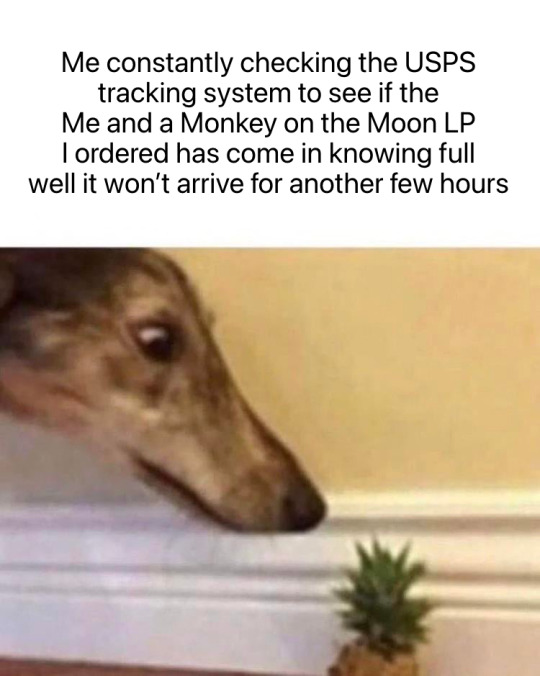
3 notes
·
View notes
Note
🎬📺 Share ten different favorite characters from ten different pieces of media in no particular order 🎮🃏 Then send this to 10 people (anon or not, your choice)
10. Steven Hyde, That 70s Show
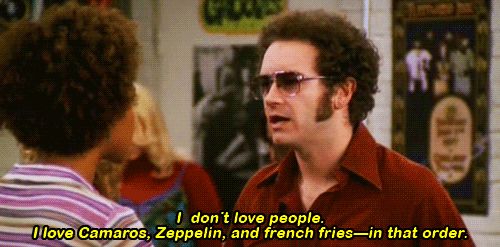
Bold, too-cool-for-school 70s boy with a loathing for authority and government and a hardcore appreciation for rock ‘n’ roll and casual painful honestly. I was a smart-ass as a teenager, of course I gravitated to other smart-asses.
9. James Bond (Daniel Craig)
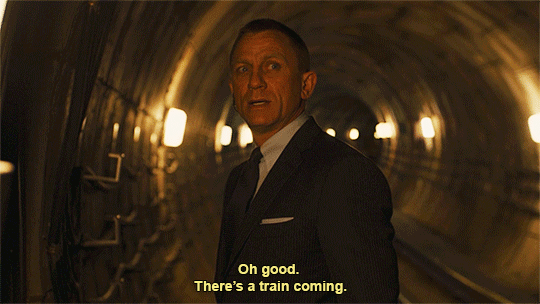
Hot Take: Love James Bond, even more with class and without the misogyny; kind of strange that it took until 2006 for that to happen. Daniel Craig is the best Bond. Not accepting rebuttals at this time.
8. Pope Heyward, Outerbanks
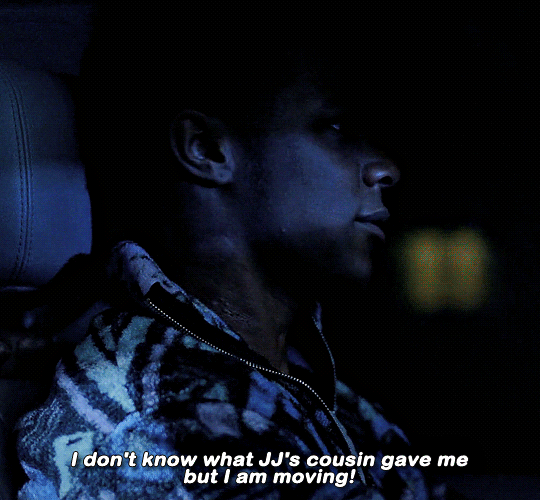
I’m in love with Pope Hayward. He deserves the world. That is all.
7. Johnny Lawrence, Cobra Kai

So Johnny reminds me of my dad if he had made bad decisions, was obsessed with karate and childhood rivalries, and had never grown up. That means nothing to everyone else, but is endlessly hilarious to me.
6. Nick Miller, New Girl

It’s honestly tied between Nick and Ernie, but nothing makes me laugh more than “Im GoNnA kIcK yOuR aSs MaN” and “I’M A MAN JESSICA”-- Two quotes that have been integrated into mine and my fiancé's reference library and are utilized way too often.
5. Marshall Eriksen, How I Met Your Mother

My other brother from the mother(land). My Minnesotan betcha buddy. Good friend, good husband, good father. Probably exactly what I’m going to be like when I get married (this a worldwide warning).
4. Darryl Philbin, The Office

My favorite Office character because he takes no shit and always says it like it is. A good sense of humor, but a low tolerance for bullshit. He is me. We are one.
3. Wayne, Letterkenny
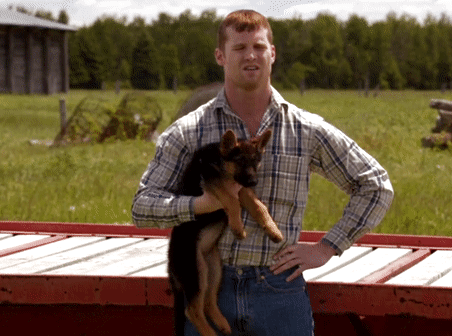
A salt-of-the-earth man, toughest-guy-in-Letterkenny, extreme joker; ready to throw down anytime for his friends, family, and lady. Chorin’, bonding, and puppers (the animal or the beer). What more could you want in life?
2. Andrew, The Binge

The first movie I watched in which I fell immediately in love with Eduardo Franco. A semi-outsider with no care regarding others’ opinions and purely longing for true friendship; i.e, how I strive to be.
1. Billy Hargrove, Stranger Things

No explanation necessary. I love Steve Harrington’s boyfriend. 10/10 would headbang with to AC/DC in his Camaro, would pass the dutchie under the Hawkins High bleachers, and would run over Neil with my car.
[I don’t really do anonymous messaging so I’m just gonna tag y’all here; as always, feel free to ignore: @latelyanobsession @iwigyousub @hrrgrve @shprka @deedoop @officialsteveharrington @pr3ttym3ssy @billyhargrovetrash @hippogriffed @lazybakerart ]
#hahhh I put way too much effort into this but it was so much fun#I love talking about movies and shows tysm whoever sent this
9 notes
·
View notes
Note
Hi there! I'd love some recs for a woman in her late 20s to mid 40s for a wealthy or bougie looking blonde woman. Needs to be half white or white because she has a white mother. I'd love a plus sized fc but will take any recs! Thank you so much!!
Jen Ponton (1984) - is queer.
Felicity Hayward (1988)
Justine LeGault (1989)
Iskra Lawrence (1990)
Hayley Hasselhoff (1992)
Lily Mae Harrington (1993) - has resources!
Hunter McGrady (1993) - has resources!
Sarina Nowak (1993)
Here you go!
3 notes
·
View notes
Text

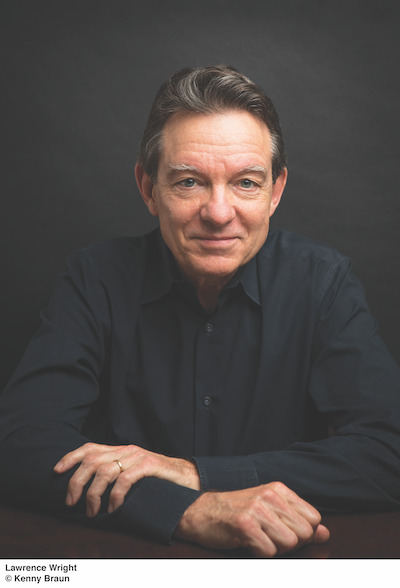
From: Daniel Kusner
Subject: Lawrence wright
Date: September 7, 2015 at 1:29:18 PM CDT
To: "Kusner, Daniel" [email protected]
You could use this: "Austin is already at the center of the bicycling culture, with flatlands on one side and hills on the other, and great weather for cycling. All we need is more bikeways to make it the perfect place for bikes to rule."
Sent from my iPhone
On Sep 7, 2015, at 1:10 PM, Kusner, Daniel [email protected] wrote:

Next Thursday, author Lawrence Wright ("Going Clear: Scientology, Hollywood, and the Prison of Belief.") is coming to Dallas for a reading and signing to promote his newest, “God Save Texas: A Journey Into the Soul of the Lone Star State ” which Knopf releases on April 17.
In Chapter 7, “Big D,” Wright recalls having dinner with Robert Wilonsky. That same chapter, Wright says, “The Dallas Morning News, the most important paper in the state and one of the leading papers in the county."
PDF — 512 CYCOLOGY
PDF new yorker — 1988


Can God Save Texas? A Film God Like Richard Linklater Might Help
One of Texas film's greatest voices speaks on the "cruelty" of the criminal justice system in a new HBO docuseries.
Eva Raggio
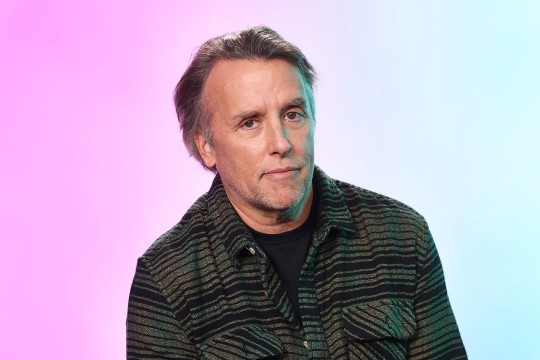
Film director Richard Linklater takes a look at the inhumanity of Texas prisons. Mat Hayward/Getty Images for IMDbGod Save Texas, a trilogy of documentaries that debuted Feb. 27 on Max, examines some of the state’s deeply rooted issues. Based on the book God Save Texas: A Journey into the Soul of the Lone Star State by Lawrence Wright, the limited series was made in three parts, each by a different Texas director.
The first, “Hometown Prison,” was directed by Richard Linklater; the second, “The Price of Oil,” by Alex Stapleton; and the third, “La Frontera,” by Ilana Sosa.
Linklater has produced a widely varied body of work, including the highly stylized intellectual favorite Waking Life, the coming-of-age comedy and stoner cult classic Dazed and Confused and indie hits such as School of Rock and Bernie.
Cinephiles are perhaps most sincerely attached to his naturalist masterpieces on time, such as Boyhood — which followed its characters through scenes that took place over 12 years and earned Patricia Arquette a Best Supporting Actress Oscar— and the Before trilogy, in which he surprised viewers with out-of-the-blue sequels, completing a love story through near-voyeuristic glimpses of a couple (played by Julie Delpy and Ethan Hawke) across cities and decades.
We spoke to Linklater via Zoom from Paris, where he's working on a film that’ll keep him away from his adopted hometown of Austin’s SXSW festival — an event he’s hardly missed in two decades. It's nighttime in the City of Lights, and he has Woody Allen's Midnight in Paris and much more on his mind.
For the Austin-based director, dealing with real subjects (including his own mother, Diane Margaret Linklater, a former professor and advocate for inmates) in God Save Texas prompted a different form of investment into his film’s characters.
“I'm always close to my characters, even if I've kind of created them, written them,” Linklater says. “But there's a real actor there. There's a real person you're working with. So in this case, you're working with real people, you're getting their own personal stories. On one hand, it didn't feel that different. I want to have an affection and an understanding for people, but it's personal: It's their lives, it's my life, it's my mom. It couldn't help but be personal. And you're asking others to tell very personal, sometimes painful stories in their own lives.
"So yeah, it's a big ask. But I think in a way, they trusted me because I was local and maybe they knew it was personal for me, but I feel close to every story. You're just trying to tell in the way you feel. So it felt right.”
Intercut with scenes from protests and stories of death row inmates, the film sees Linklater returning to Huntsville, a city 70 miles north of Houston that has the most active death row prison in the U.S. Viewers can practically smell the grease off the small-town diner menus as Linklater reflects with his subjects (many of them his old classmates), on how his hometown’s prison industry grew so wildly out of control — at least tenfold, from 10 prisons to 114 — in the past few decades, and uncovers the inhumanity of inmates' living conditions.
The auteur filmmaker is a proud Texan whose roots creep up in his work. And he maintains the love of home while decrying its systemic failures.
“You're catching me on the wrong night,” he says of his feelings for Texas. “We're executing an innocent guy tomorrow in Huntsville, Ivan Cantu, who's being put to death without … I mean, I can't believe it. I'm just stunned and really depressed, kind of a little desperate. We've been doing all we can. It's just like, gosh, the new normal. OK, we can kill innocent people. The next administration, maybe we can start … There's talk of camps. What's next? What can we put up with?
"So on the one hand, I love Texas and I love the people, but I really do feel a disconnect with the cruelty. ‘Cause I know Texans aren't cruel by and large, but I think our government policies are extremely cruel, and this executing an innocent person is about the top of the list. So I don't know. It's times like this you feel pretty bad.”
Linklater says he didn’t stumble into any major production roadblocks, but taking on a project that required such a deeply personal investment was a matter of facing his past to expose a haunting present.
“Everyone was so giving and open and kind; I think it was just me getting over just wanting to go there myself,” he says. “This film concerns my mom. It's a lot of my own past. I was asking people to tell their stories. So it was just deciding to do it, I think. And I mean, these issues about criminal justice and the death penalty, these have swum around in my head all these years.
“It was kind of cathartic and satisfying to find a home for some of these feelings. And my summation is fairly simple, really. I think after all of it, it's just like, yeah, the death penalty really does hurt a lot of … there's a lot of collateral damage to so many people and these state employees who have to be dragged through it. So to me, it's just kind of unnecessary trauma induced on innocent people.”
The film focuses on the trauma on both sides of the bars, from convicted inmates (many of whom proclaim their innocence) to state workers whose daily duties include strapping the bodies of death row prisoners onto and off the gurney. His opinions on the death penalty haven’t necessarily changed, but Linklater is more adamant than ever that the system predatorily exploits human error for profit, as we idly cede our rights to a state where punishment far too often exceeds the crime.
“My conclusion is don't do it,” he says. “I'm not a full-blown prison abolitionist, but I'm heading that way only in that — I don't mean let murderers out on the streets. I just think we could approach in a much more humane … the way we systematically create all this pain. We could systematically create more worthwhile treatment. I mean, face it, the prisons are full of people in on — it's mental health and drug addiction. If you treated those things, there goes 90% of the population right there.
“And then keep really the psychopaths, the murderers, serial sexual assaulters. I think we all have a vested interest in keeping certain people isolated from the general population, but people who made a bad mistake or something, I can't explain a tenfold increase. Crime is down everywhere. That's just the trend. Violent crime, everything's down. So why is our prison gone up 10 times in the last 40 years? I don't know. Things we have to ask ourselves. ... We should be investing in people, not just punishing them.”
For God Save Texas, he says, the trio of directors hardly compared pre-production notes beforehand.
“We were sort of siloed in our own projects,” Linklater says. “We knew what everybody was doing, but I guess I went first and set a certain tone, maybe with the personal. When we started I don't think we really had a full plan. I was like, ‘Larry [Wright, who also executive-produced the series], so are we gonna go to Huntsville?’ And we just felt our way through it.”
Before and After the Before Trilogy
With his cinematic oeuvre falling into an array of styles and genres, Linklater doesn't give much thought to his overarching body of work, preferring to hyper-focus on each film. He says he hasn’t even pondered the uniting thread woven across his projects.
“I don't know. I'm always telling kind of character-based work,” he says. “The concept is never bigger than the characters. They're pretty far away from superhero or anything like that.”
While his films are often of the deeply felt variety that persist on viewers’ minds long after the credits roll, he also adds: “Or laugh. I've made comedies, a little bit of everything. I don't know, just always trying to express myself in my own relation to the particular story or subject.”
Least of all does he consider his legacy, or his writing living on through the ages.
“Boy, I can tell you, I never think I'll live on for generations,” he says with a laugh. “I'm really focused on what I'm doing like right now, making this movie. So that's really all you can do.”
He concedes that he's mildly aware the Before movies have prompted a niche form of tourism, made up of fans who visit the first film’s Vienna locations, for example. But he hasn’t been to Vienna in about 15 years and assumes the interest has dwindled. (It hasn’t; visit the record shop where Jesse and Celine share a charged exchange of awkward missed glances in a listening booth, and see for yourself.) He laughs at our joke suggesting the Austrian capital should’ve given him a key to the city.
Nonetheless, as he finds himself in Paris, Linklater has learned that the bookstore featured in the second installment, Before Sunset, is still a bit of a treasure for fans following the Before map.
In Huntsville, he’s known as “Rick,” a former football player for the state’s highest-ranking team. As a young adult, he self-taught filmmaking on a Super 8 camera. Before long, Rick went on to receive Academy Award nominations, be named one of Time’s most influential people in the world in 2015, and become an advocate for filmmaking, and particularly Texas filmmaking, as co-founder of the Austin Film Society.
He's a successful independent filmmaker whose movies have made a crater-sized mark on pop culture, so one would assume Linklater finds himself in a privileged spot coveted by any artist looking to make an impact without the fine print double-dealings.
“Successful? I don't know. It doesn't feel that way all the time when you're working on a real low budget and you don't have enough time or money to make your movie,” he says. “But maybe that's it. I've just never cared about, I guess, the money or that result. I've really just focused on the next story I'm trying to tell and kind of avoided a certain kind of careerist trappings. Maybe staying in Texas probably was a good thing for my mental health.”
It hasn’t been hard, he says, to sustain that balance, keeping a sense of artistic autonomy while avoiding industry money grabs and other Hollywood pitfalls.
“You say no a lot," he says. "I think you define yourself a lot in this world — it sounds corny or maybe you heard it: It's like you kind of define yourself by what you don't do. Just because you have opportunities doesn't mean you have to do it. So the things I've turned down, the things I've not wanted to do that I could have, kind of defined you. It's like, yeah, no, I'm really focused over here. I know that's more money and that [I’ll] get to work with some big star, but I don't really want to do that. I want to tell [my stories]. So just follow your own muse.”
During the pandemic, his kids became an elite audience in a Linklater-selected, at-home film festival. He was glad they’d grown past the animated children’s movie days (“I could not wait to get out of kid movies. We did that pretty quick. I'm a filmmaker, I was showing them stuff, but yeah, I could not wait until they were starting to ask me more about movies”) and into more sophisticated cinematic territory.
“Say what you will, the pandemic was terrible, but we watched a movie every night,” he says. “These teenagers [would ask], ‘What movie are you going to watch now? Let's do the French New Wave, or let's watch films from Brazil.’ It was like my own little one-year curation, my own little film society in the family.”
For all the brilliant dialogue that mark his own films, the uniting thread he never thinks about, Linklater isn’t surprised that the most quoted line from his movies was famously ad-libbed by Matthew McConaughey in Dazed and Confused.
“He wasn't even scheduled to work that night,” he says of his fellow Texan. “We worked up that scene and he just threw in that 'All right, all right, all right’ — he said that as he was driving in, and I thought it was really funny."
Linklater remembers that "within a day or two after that," the expression became a popular saying among the film crew.
"I noticed a key grip say, ‘OK, we're laying some dolly track over there. Let's go do that. And [he] goes, ‘All right, all right, all right, all right.' He was already repeating it," Linklater says. " And on one hand, I'm not surprised. I mean, of course you're surprised when you see a T-shirt with it or something like that, that's crazy.
“Matthew … he's earned it, I guess.”
click to enlarge
A new HBO docuseries finds Austin director Richard Linklater visiting his hometown to examine a universal issue: the ever-expanding prison industry.
Max/Richard Linklater
newyorker.com
In “Hometown Prison,” Richard Linklater Looks at Life on Both Sides of the Wall
Richard Brody
8–11 minutes
With little fanfare, a complex and far-reaching personal documentary by Richard Linklater, “Hometown Prison,” dropped last week on the streaming service Max. It’s one of a trio of excellent films made under the rubric “God Save Texas,” based on the book by Lawrence Wright, of this publication—all of which consider the state’s history and politics in the light of the filmmakers’ own lives and families. The second film, “The Price of Oil,” directed by the seventh-generation Texan Alex Stapleton, traces the economic racism on which the state’s oil industry was built, as manifested in its disproportionate pollution of predominantly Black neighborhoods, including her family’s own. The third, “La Frontera,” by Iliana Sosa, who was born in El Paso to a family of Mexican descent, considers the historical unity of that city with its Mexican neighbor, Ciudad Juárez, and the enduring burdens imposed on Mexican Americans by white supremacy and the resulting militarized border. It takes nothing away from these latter films—exemplary blends of journalistic investigation, historical analysis, and intimate experience—to call particular attention to the power and the aesthetic range of Linklater’s documentary, which combines a narrow focus on a single institution with a conjoined exploration of the director’s life and his œuvre.
“Hometown Prison” is about Huntsville, Texas, where Linklater lived from 1970 (the year he turned ten) to 1981. He has previously explored his boyhood experiences there in such films as “Dazed and Confused,” “Everybody Wants Some!!,” and, of course, “Boyhood.” However, “Hometown Prison” concentrates on one oppressive peculiarity of the town: there’s a large prison in the middle of it, in plain view of much of daily life there, and a vast network of prisons spread throughout the town and its vicinity. The prison system is the town’s main employer. Texas, as Linklater relates, has the most incarcerated people of any state; it also executes more people than any other state, and those executions take place in Huntsville. Prisons, in other words, are a ubiquitous presence in Huntsville’s landscape, and yet, Linklater says, “At some point, you don’t really even see it.” In “Hometown Prison,” he attempts to see—and to give voice to silences on the subject, in his life and his work, that he has until now not managed to break.
It wasn’t for lack of trying. Though Linklater credits Wright (one of the filmmaker’s longtime friends, who appears on camera, as he does in the other two films in the series) with the suggestion to make “Hometown Prison,” the work is anchored in two incomplete projects of Linklater’s. The first, a drama that he’d hoped to make in 2002, was about two high-school football players who, a year after graduation, end up on opposite sides of the prison walls. The second was to have been made from documentary footage that he shot in 2003, of protests outside those walls, when an inmate named Delma Banks, Jr., was about to be executed despite abundant evidence of his innocence. Linklater couldn’t find funding for the drama and never did anything with the footage—plentiful amounts of which appear in “Hometown Prison.”
Here, Linklater breaks silence in the most direct and literal way—by speaking. He delivers a copious and confessional voice-over, complete with reminiscences, observations distilled from research, and candid assertions (as when he declares capital punishment “barbaric”). He also appears on camera, in conversation with Huntsville residents whose lives intersect with his and with the town’s carceral economy. Linklater’s recollections of his late mother, Diane (included by way of a talk with one of her friends), involve her activism on behalf of incarcerated people released into town with no support. One of the most revealing exchanges is with Elroy Thomas, a manager at a Huntsville bus depot, who estimates that, in his thirty years on the job, he has sold one-way tickets out of town to hundreds of thousands of newly released prisoners—and adds that, in the process, he has become acutely sensitive to their frame of mind and the extent of the preparedness to return to private life. It’s shocking to see a line of former inmates walking casually away from prison with no clear destination down the closed-off vista of a leafy street. “They don’t offer no rehabilitation,” one of them comments. “If you’re trying to get right, you need to do it on your own.”
Among the ex-prisoners with whom Linklater speaks is Dale Enderlin, one of his former baseball teammates from Huntsville’s Sam Houston State University, where Linklater’s mother taught. (The team was later the subject of “Everybody Wants Some!!”) Enderlin spent thirty-nine months in prison for white-collar crimes, and his main observation from his time there is how routinely young, nonwhite people are railroaded into confessions for crimes that they didn’t commit. A civil-rights lawyer, Bill Habern, who arrived in town as a public defender in the nineteen-seventies, dated Linklater’s mother, and remained a family friend, says, “I came to Huntsville and I thought I’d landed in Mississippi twenty years before.” He shows Linklater bullet holes in his home, estimating that there are twelve to fifteen. Ed Owens, the first Black warden of a Huntsville prison, says that he experienced far more racism owing to his work inside the walls than to anything in ordinary town life; during protests involving one execution, the Ku Klux Klan demonstrated outside his house.
A prison in Huntsville, Texas.
The attitudes of many Sam Houston students interviewed in the documentary belie the centrality of prison to life in Huntsville. Despite being on a campus with clear views of uniformed prison guards, inmates being released, and demonstrations against capital punishment, they claim not to pay much attention to the facility’s proximity. “I’ve never given too much thought to it, until you hear the siren go off,” one student says. Another notes, “It seems that everyone’s aware of it, but no one wants to talk about it”; a third adds, “I’ve never heard no professor talk about it.” Linklater affirms that the “disconnect” is “kind of a Huntsville tradition.” One of his former high-school football teammates says that, even now, the prison “doesn’t even come to my consciousness.”
Of course, there are some in Huntsville for whom the prison system looms large. Linklater interviews many of them: the formerly incarcerated, and family members of the incarcerated; a local historian and activist who seeks to change the town’s civic life and is well aware of being despised for it; former corrections officials, whose firsthand experiences witnessing or even participating in executions has caused them to reject the practice; and a current one who finds the rigors of the carceral system hard to bear. Moreover, Linklater recalls one of his stepfathers, a prison guard (whom he dramatized in “Boyhood”) whom the stresses of the prison system psychologically warped and darkened.
Just a few minutes into “Hometown Prison,” there’s a shot of a restaurant across the road from a barbed-wire-fenced prison unit, which has a cheerful sign announcing “Sunday: Kids Eat Free.” I was reminded of another movie in current release, Jonathan Glazer’s historical drama “The Zone of Interest,” which is set outside the walls of Auschwitz, in a house where the camp’s commandant, Rudolf Höss; his wife, Hedwig; and their three young children live, apparently pretending, to the fullest of their capacities, that their lives are normal. Unlike Glazer, Linklater doesn’t merely observe Huntsville residents’ lives alongside prison but also hears from them. He displays deep and sincere curiosity about what people involved in a cruel system—or even merely living in view of one—say, think, and feel. He probes the psychology of their efforts to keep prison from their minds and also considers the ideologies behind the prevalence of incarceration and the death penalty in Texas—including racism, class-based inequity, an enduring myth of frontier justice, brazen demagogy, and a form of Christian fundamentalism that emphasizes strictness rather than mercy—as well as the practical policies that sustain the carceral system there, including the economic motives of contracts for businesses and employment for residents.
“Hometown Prison,” with its free and hybrid form, empathetically and indignantly brings suppressed agonies to light. It does more, too. Linklater looks deeply at the town’s self-gaslighting, at how it’s maintained and who maintains it, and to what ends. The film is a fervent and trenchant work of political psychology, living history, investigative journalism, and anguished confession.
With humor and the biting insight of a native, the Pulitzer Prize-winning author Lawrence explores the history, culture, and politics of Texas, while holding the stereotypes up for rigorous scrutiny.
God Save Texas (Penguin, 2018) is a journey through the most controversial state in America. It is a red state in the heart of Trumpland that hasn’t elected a Democrat to a statewide office in more than twenty years; but it is also a state in which minorities already form a majority (including the largest number of Muslims). The cities are blue and among the most diverse in the nation. Oil is still king but Texas now leads California in technology exports. The Texas economic model of low taxes and minimal regulation has produced extraordinary growth but also striking income disparities. Texas looks a lot like the America that Donald Trump wants to create. And Wright’s profound portrait of the state not only reflects our country back as it is, but as it was and as it might be.
Lawrence Wright is a staff writer for The New Yorker and the author of nine previous books of nonfiction, including In the New World, Remembering Satan, The Looming Tower, Going Clear, Thirteen Days in September, and The Terror Years,and one novel, God’s Favorite. His books have received many prizes and honors, including a Pulitzer Prize for The Looming Tower. He is also a playwright and screenwriter. He is a longtime resident of Austin.
A light reception will precede the event beginning at 5:30 pm, with the lecture starting at 6:00 pm. Parking will be available on the SMU campus. FREE passes will be emailed to registered guests before the event. Seating is limited, and not guaranteed.
Wright's publication of the same title will be available for purchase and signing after the event.
TEACHERS ONLY -- Please sign in at the registration table to receive continuing education credit.
Co-sponsored with SMU's Clements Center for Southwest Studies, Center for Presidential History, the John Tower Center for Political Studies, the Clements Department of History, the Dedman College Interdisiplinary Institute, and Dedman College of Humanities and Sciences.
-- Southern Methodist University
0 notes